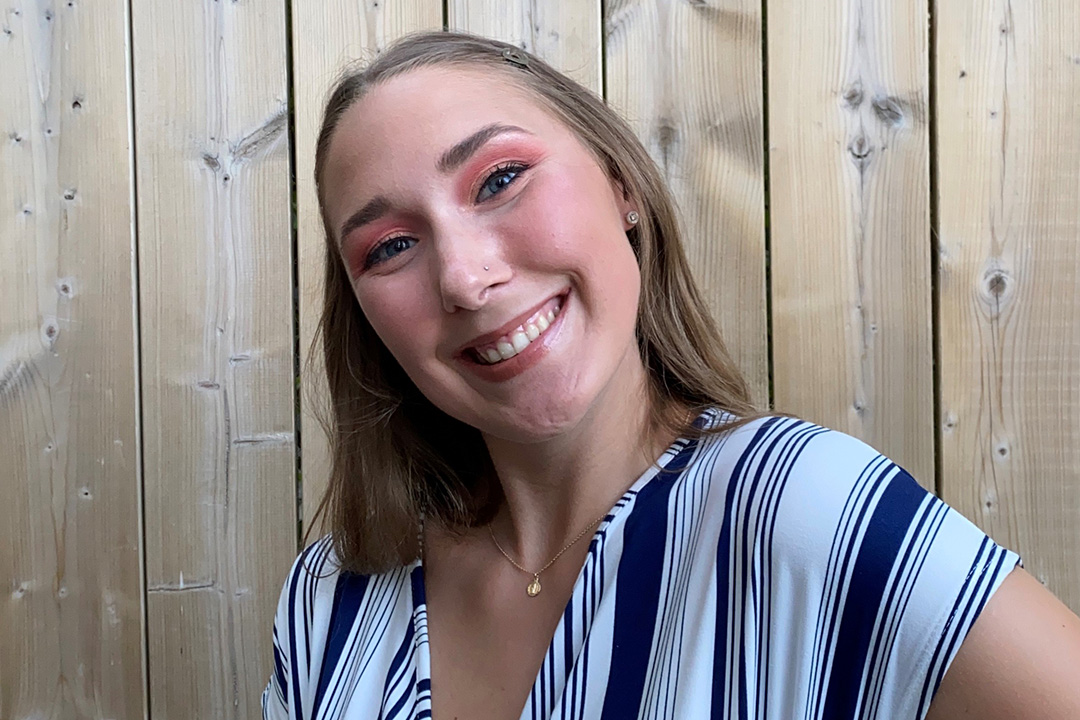
Mining scholarship a turning point for female engineering student
Jodi Boser decided that receiving the $12,000 Mining Futures Award from the International Minerals Innovation Institute was a sign that she should continue pursuing her engineering degree.
By Inalie PortadesIt was news that couldn't have come at a better time.
In January, third-year geological engineering student Jodi Boser learned she had won the $12,000 Mining Futures Award scholarship, created by the International Minerals Innovation Institute (IMII) to help University of Saskatchewan (USask) undergraduate students studying mining engineering with the cost of their tuition, books, instruments, and fees.
Her win was publicly announced at the College of Engineering’s 62nd annual awards ceremony on March 3.
“Before hearing the news in January, I was going through some personal struggles and unsure of whether I was going to be able to complete the semester. However, I got a phone call from the Engineering Student Centre office and (they) notified me that I was selected as this year’s recipient. In that moment, I knew that the award was my sign to keep going,” said Boser, who received a $12,000 award.
“I told myself that if there’s a professional organization like IMII that wants to support me, then I have to believe in myself, and so I did.”Since 2012, the IMII has been supporting and sustaining the Saskatchewan minerals industry. It is committed to developing and implementing innovative education, training, research and world-class partnerships, as well as investing in future professionals.
Al Shpyth (BA‘86), executive director of IMII, said that students like Boser are important to the future of Saskatchewan’s minerals industry.
“Saskatchewan is one of Canada’s great minerals jurisdictions, and our industries have long relied on graduates from the University of Saskatchewan, investing in homegrown talent.”
Not only does the IMII see the value of supporting aspiring engineers, the organization also embraces diversity and inclusion. In 2019, it launched its scholarship programs—the Mining Futures Award being one of them—to help women and Indigenous post-secondary students break through in the minerals industry.
“We wanted to ensure that our scholarships will help solve the financial barriers to entering post-secondary education and at the same time, be used to support diversity and inclusion in the workforce,” Shpyth said.
Boser said that the IMII’s scholarship programs stood out to her as they are geared to support women and Indigenous students who are interested in pursuing a career in STEM fields (science, technology, engineering and mathematics). She saw the Mining Futures Award as an opportunity to gain credibility in the mining industry as a young female student.
“There have been many times where I was the only girl that I saw working underground; I was constantly surrounded by men. I know my opinions are often disregarded because I am a female engineering student,” Boser explained.
“Young women in technical positions have to prove that they deserve the respect that our male counterparts are automatically given, so it’s exciting to see that organizations in the mining industry are pushing for positive change with respect to diversity and inclusion in STEM fields.”
Since Boser received the award, she said that everything has fallen into place perfectly. It has motivated her to work hard and share her experiences in mining with other students. She is looking forward to completing her degree in 2022 and one day, landing a career in the potash industry.

